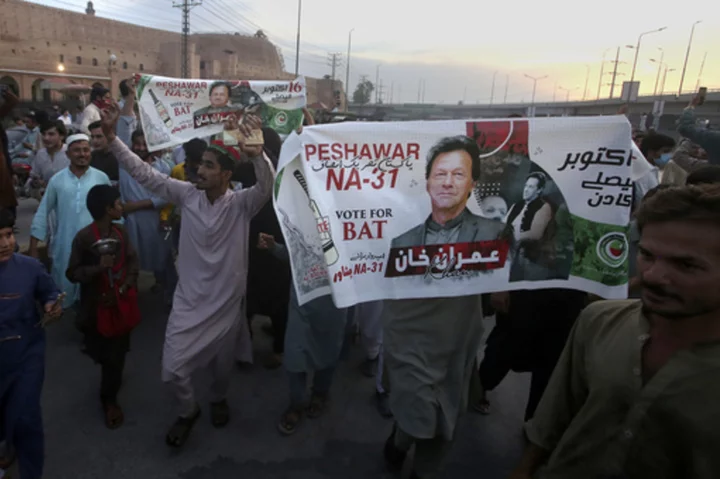ISLAMABAD (AP) — Pakistan’s former Prime Minister Imran Khan was to return to court on Friday to hear whether he will be shielded from renewed arrest or taken back into custody — a decision that put Pakistan’s government and legions of Khan supporters on edge after days of violent confrontations.
The popular 70-year-old opposition leader will appear before the same court from which he had been dragged and arrested on Tuesday. The arrest had triggered nationwide protests in which his supporters attacked military installations, burned vehicles, and ambulances and looted general stores in various parts of the country. The violence drew condemnation from the government.
Friday’s court session is part of complex legal maneuvers.
On Thursday, Pakistan’s Supreme Court had declared that Khan’s arrest was unlawful, but then asked the Islamabad High Court — a lower court — to reconsider its initial decision to uphold the arrest.
The Supreme Court said it would respect Friday’s ruling by the Islamabad court.
The government said it would quickly arrest Khan if the Islamabad High Court upheld its earlier order. Khan was arrested on Tuesday by the National Accountability Bureau in connection with graft charges.
This week's violence left at least 10 Khan supporters dead. Dozens of protesters and more than 200 police officers were injured. Protesters torched trucks, cars and police vehicles and blocked highways.
It echoed unrest that followed the 2007 assassination of former Prime Minister Benazir Bhutto during an election rally. Her supporters at the time, outraged by her killing, rampaged for days across Pakistan.
Khan, who was ousted as prime minister last year and leads the opposition, faces more than legal 100 cases, most involving allegations that he incited to violence, and threatened police and government officials. He also faces at least three graft cases. A new terrorism charge was filed against him Thursday for allegedly inciting his followers to violence after his arrest.
Under Pakistan's legal system, a defendant can seek protection from arrest in court hearings. Khan is vulnerable to arrests because he has not obtained such protection in all of the cases against him.
Following the Supreme Court's release order Thursday, Khan spent a night at a government guest house in Islamabad, where he met with his family members and friends. The country's President Arif Alvi also had a meeting with him.
Alvi has been trying to defuse tension between Khan and Prime Minister Shahbaz Sharif's government to avoid escalation in the country which is accustomed to military takeovers, political crises and violence.
Since Tuesday, protesters have been clashing with police, who have arrested nearly 3,000 supporters from Khan's Pakistan Tehreek-e-Insaf party. They include Khan's deputies who have been jailed.
After Khan was freed Thursday, Sharif's government criticized Chief Justice Umar Ata Bandial for giving Khan a reprieve. It alleged Khan was involved in corruption and therefore should not have been freed.
Sharif's government accused the chief justice of bias.
Khan was ousted in April 2022 through no-confidence in the parliament. He claims his removal was part of a plot by the United States, Sharif and the military — a charge all three have denied.

